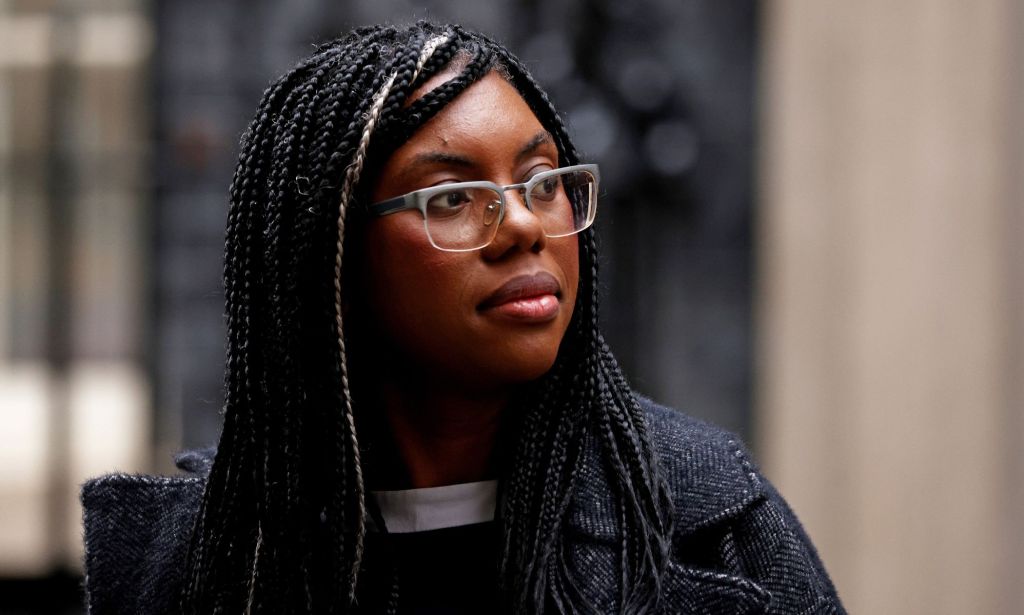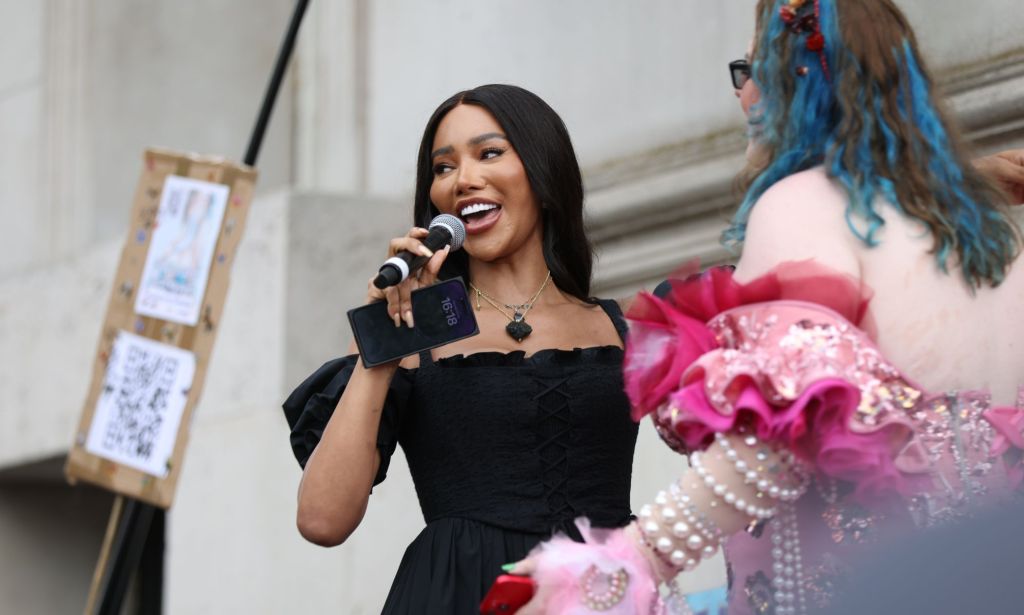Munroe Bergdorf warns Gen Z are growing up in ‘the most transphobic time in recent memory’

Munroe Bergdorf. (Getty/Mike Marsland)
Author Munroe Bergdorf says Generation Z are growing up in “the most transphobic time in recent memory” – and has warned that things could be about to get a lot worse.
While Gen Z is the most out queer generation the world has seen, they are growing up against a background of immense anti-LGBTQ+ bigotry.
Munroe Bergdorf, 35, belives it’s led to a growing number of trans youth feeling like they have “no escape” from the relentless attacks on the community.
“Trans kids are being debated on TV every single morning. I can’t imagine how that feels to be exposed to that kind of negativity before you go to school,” the writer and model said at an event hosted by GQ earlier this week, while in conversation with BBC Radio One presenter Vick Hope.
“And then the government say that teachers should be outing trans kids to their parents when school should be a safe space for them,” she added. “There’s no escape from it.”
In recent weeks, the British government has been promising to publish long-awaited guidance for schools on how to cooperate with trans pupils, yet the guidance has been delayed.
Alleged details of the policy leaked last month, indicating that trans pupils would be banned from playing in school sports competitions that align with their gender identity.
The guidance also suggested that pupils will not be able to socially transition while at school without express permission from parents or guardians, effectively forcing teachers to out them to their families.

On Sunday (16 July), the UK’s equalities minister Kemi Badenoch dropped the biggest hint yet that the policy would in fact force pupils to be outed to their parents, telling BBC’s Laura Kuenssberg that parent’s should know “what is going on” with their children.
“There is quite a lot of confusion about what the law says and it’s important that parents are aware of what’s going on with their children and what’s happening to them at school,” Badenoch said.
Bergdorf, who released her memoir Transitional back in February, took aim at the Conservative government earlier this month at London Trans+ Pride.
Addressing a huge crowd, Bergdorf said that the government had induced a “moral panic” around trans people in the UK and that trans people’s lives had been “kicked around like a political football“.

“The human rights, wellbeing, dignity and bodily autonomy of transgender human beings have been disregarded in the pursuit of inducing a moral panic, devoid of empathy and understanding, fuelled by anger and apathy,” Bergdorf said during her impassioned speech.
“The abject truth has been replaced with abstract lies. Scientific guidance replaced with media sensationalism and religious evangelicalism … understanding of difference replaced with irrational fear and knee-jerk opinions. Community replaced with a closed door,” she added.
Back in April, Bergdorf told her 550,000 Instagram followers that unless the Conservatives were ousted at the next general election she would “almost certainly be packing [her] bags” to “start a new life” somewhere else.
While political leaders and policymakers and not giving young trans people much hope right now, changemakers like Bergdorf are at least using their voice to explain how everyone can be better allies for the community.
“Be there for kids and allow them to be themselves,”she told the audience at GQ’s event. “Don’t push them to be what you want them to be. Create safe spaces in every single environment that you are around young people because you never know the reality of that young person.
“They’re not just a child, they are a little person, and they’re gonna carry that experience of their gender or of their sexuality or of their race and how they were treated in their childhood for the rest of their life.”

